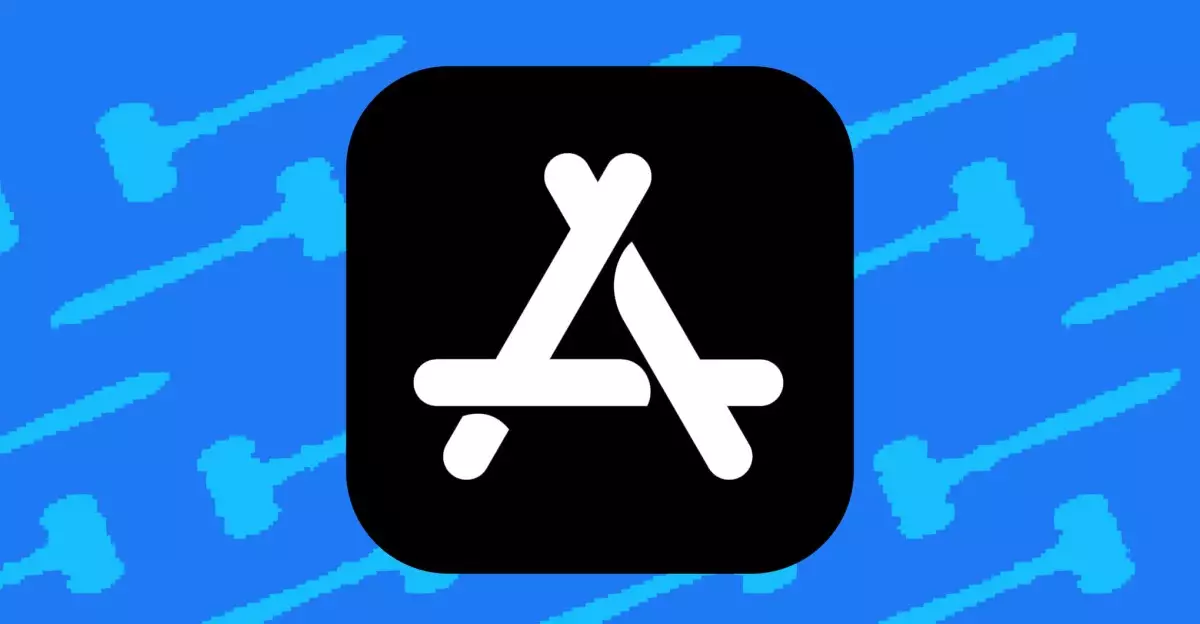The tumultuous legal saga between Epic Games and Apple continues to raise eyebrows, as the stakes become increasingly high. Epic recently filed a motion accusing Apple of contempt regarding a court order from last April, which sought to limit Apple’s power over app rejections based on the use of external payment links. It is within this complex web of legalities that the gaming giant seeks justice, advocating for a more open and fair digital marketplace.
This latest twist underscores the growing tensions within the digital economy. At the center of this litigation is Epic’s flagship product, Fortnite, a game that has not only captivated millions but shaped the gaming industry. The crux of the matter lies in Epic’s assertion that Apple is intentionally delaying the approval of Fortnite’s submission in retaliation for the ongoing legal dispute. This alleged “punitive” behavior raises ethical questions about monopolistic practices in an industry often dominated by a few players.
The Courtroom Drama Unfolds
The public nature of this litigation exemplifies the intense scrutiny faced by large corporations. District Judge Yvonne Gonzalez Rogers has previously ruled against Epic, though her latest statements hint at her growing frustration with Apple’s maneuvers. In her initial April ruling, she mandated a degree of compliance from Apple regarding app submissions related to external payment links, essentially echoing the demand for a fairer playing field in app marketplaces.
Epic has argued that Apple’s refusal to approve Fortnite—despite assurances given to the court—constitutes a clear violation of that ruling. This dissonance between Apple’s promises and its actions raises significant concerns about accountability and transparency in corporate behavior. Why should a single entity wield such substantial control over how developers can distribute their products?
Wider Implications for Developers
This legal battle does not merely impact Epic; it resonates throughout the entire developer community. The implications of this case extend far beyond one game, affecting countless app developers who rely on platforms like the App Store to reach consumers. Many developers echo Epic’s concerns about the stringent guidelines enforced by Apple, which often feel arbitrary and capricious.
In this context, the question arises: Is Apple stifling innovation under the pretense of quality control? For many smaller developers, the barriers presented by Apple’s policies can be discouraging, limiting their ability to compete in a saturated market. An outcome favorable to Epic could not only allow Fortnite’s return but could also open doorways for various developers, ensuring that the App Store becomes a fairer arena for competition.
Legal Complexities and Future Prospects
While the immediate battle centers on Fortnite, the undercurrents of this case illustrate broader themes surrounding antitrust laws and the responsibilities of market leaders. Apple’s insistence that Fortnite be resubmitted without US pricing options illustrates a deliberate strategy to maintain control, raising legal eyebrows as to whether such practices are justified. The importance of Judge Gonzalez Rogers’ response cannot be overstated; her irritation with Apple hinted at a potential judicial rebuke that could realign the relationship between app developers and commission-based platforms.
Epic’s request for the court to enforce compliance with its injunction can pave the way for a more equitable platform environment, leading to systemic changes that redefine the developer-platform relationship. If successful, this could mark a significant victory not just for Epic but for the entire tech ecosystem, encouraging more open marketplaces and diminished monopolistic tendencies.
Anticipating the Outcome
As this legal spectacle unfolds, the anticipation of the Ninth Circuit Court’s decision looms large. A ruling in favor of Epic could signify an important shift in how digital marketplaces operate and alter Apple’s business practices moving forward. Conversely, if the court rules in favor of Apple, it could reinforce the status quo, maintaining a significant power imbalance in favor of platform holders.
In the coming weeks, all eyes will be on the courtroom as this case develops. The decisions made here may profoundly influence how developers operate within the digital landscape, potentially marking a new chapter in the ongoing discourse around fair practices in digital commerce. Whether this legal battle leads to greater equity in app distribution remains to be seen, but it certainly sets a captivating stage for ongoing discussions about power, control, and the future of digital innovation.

